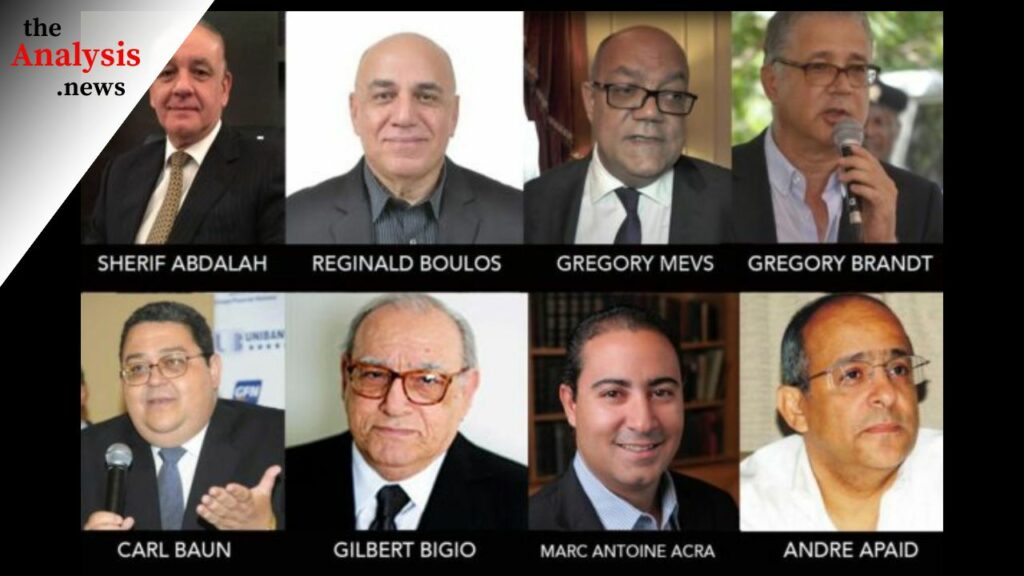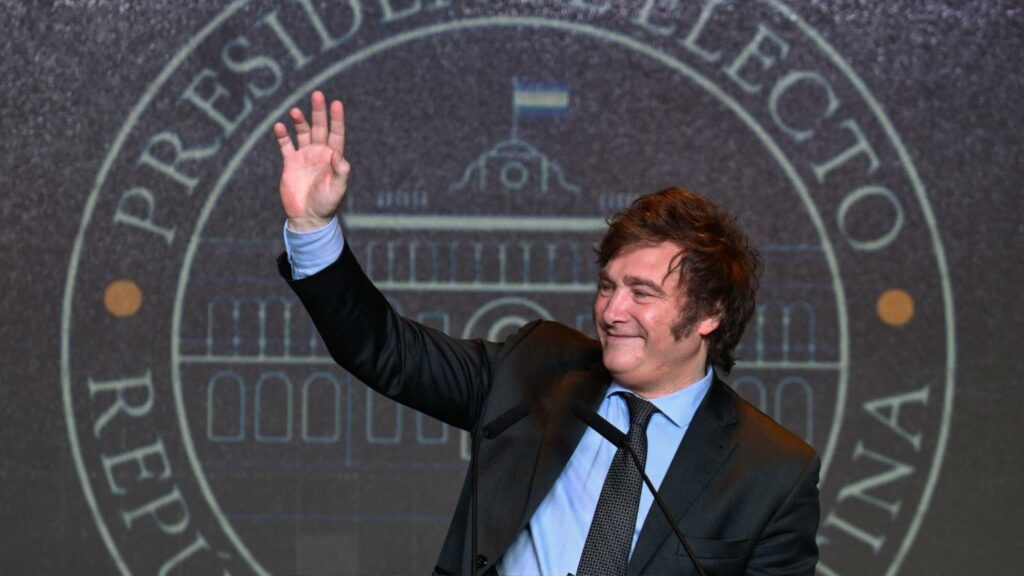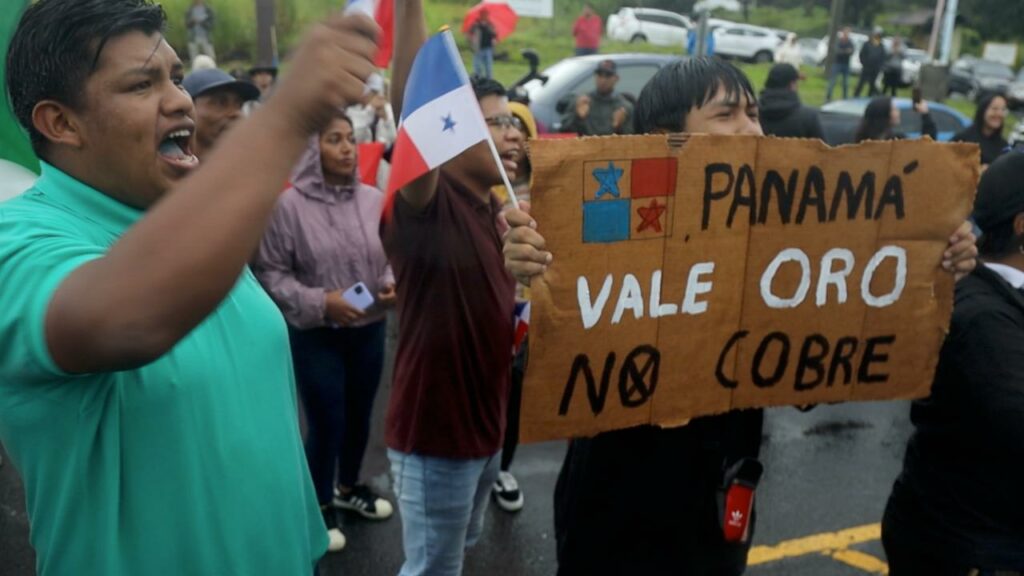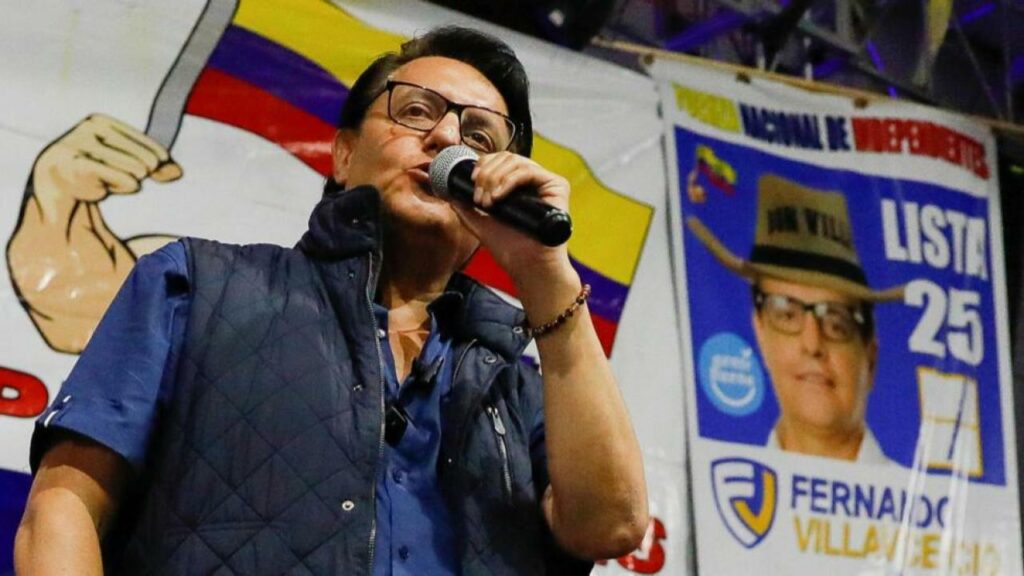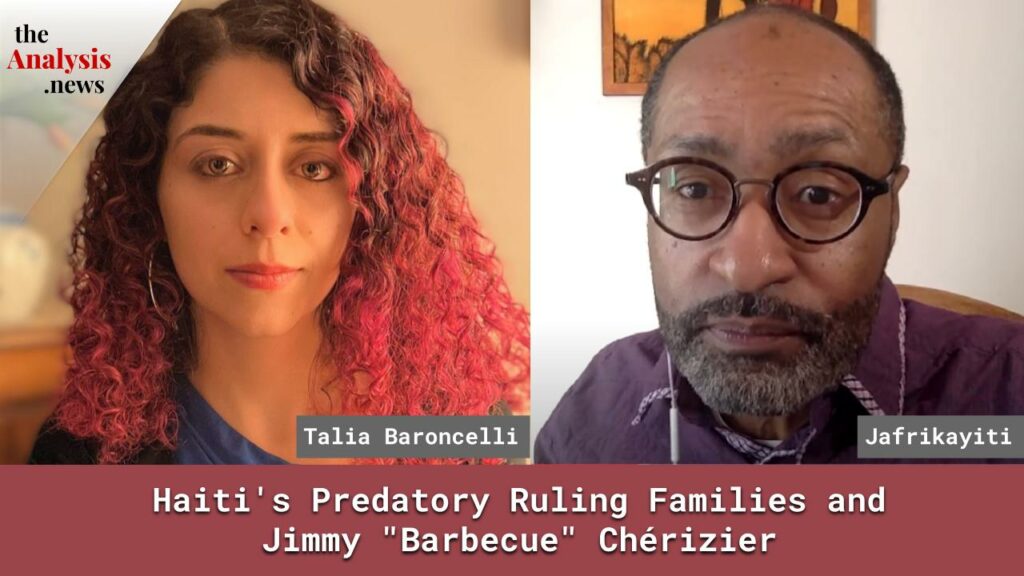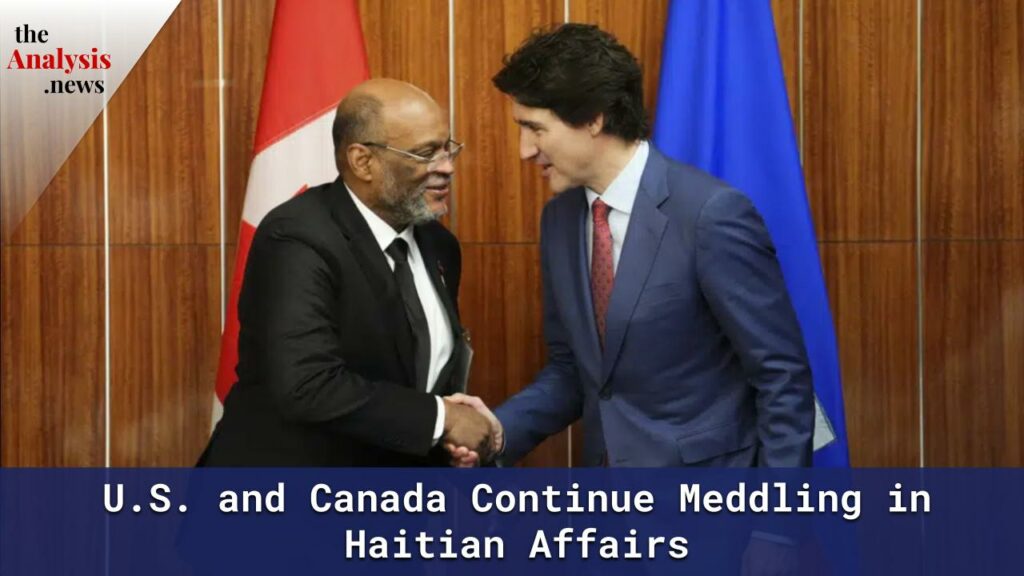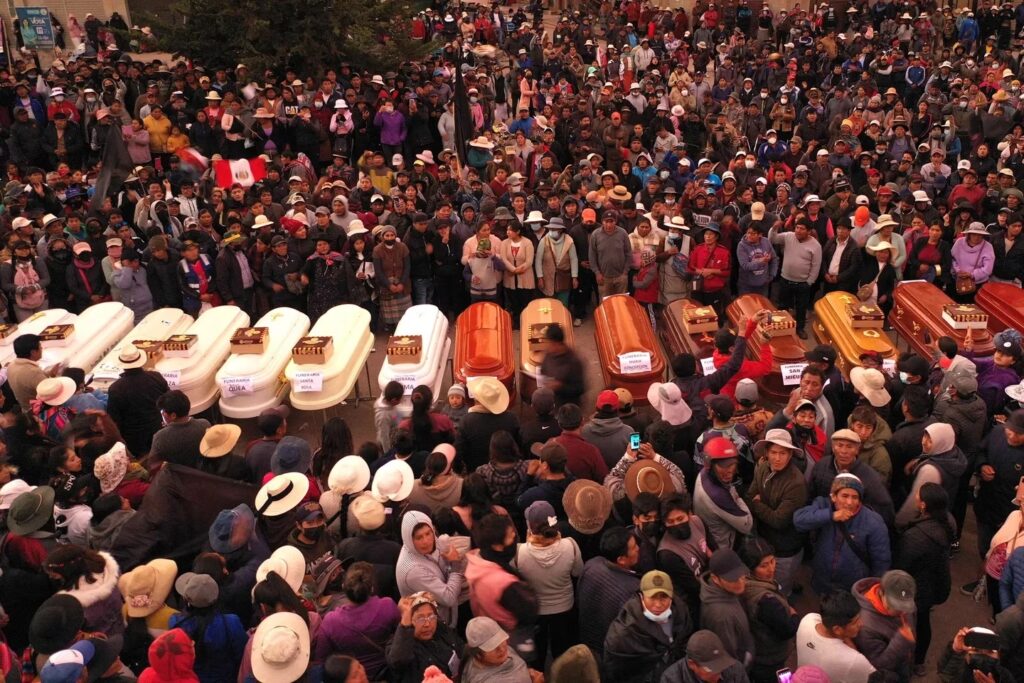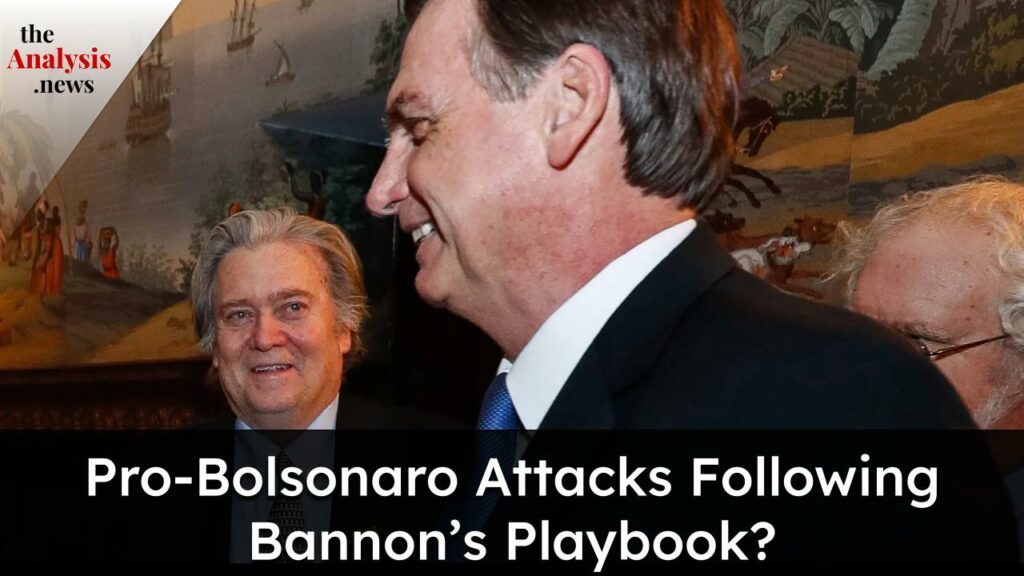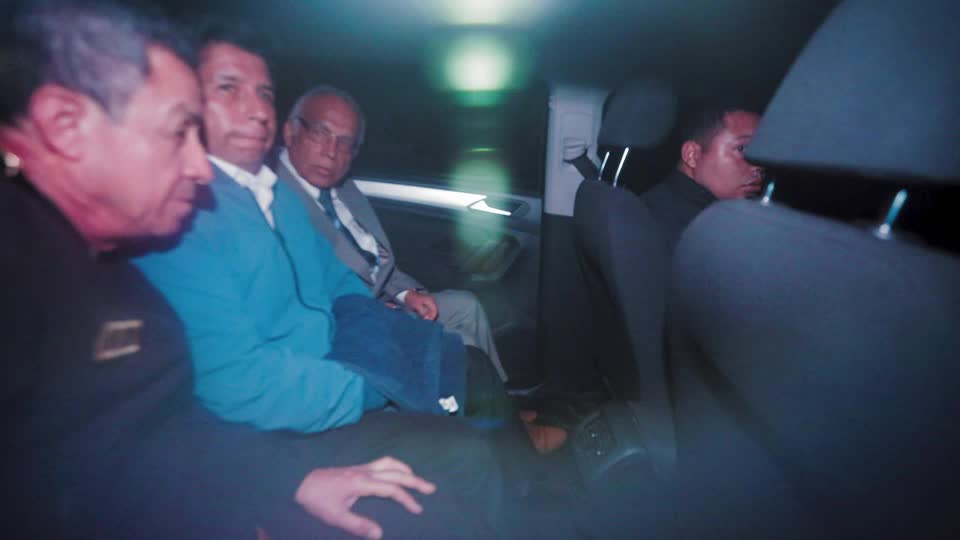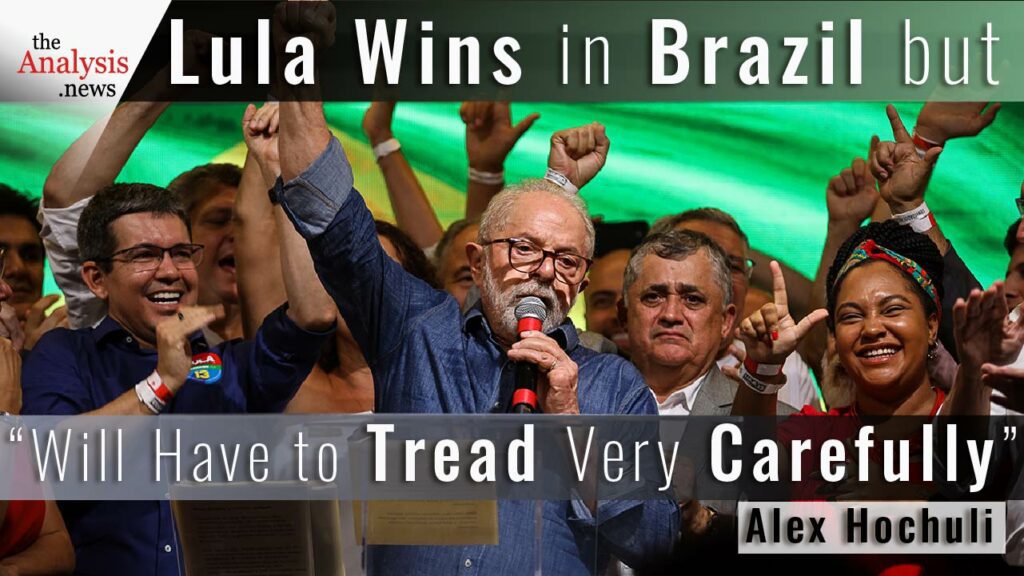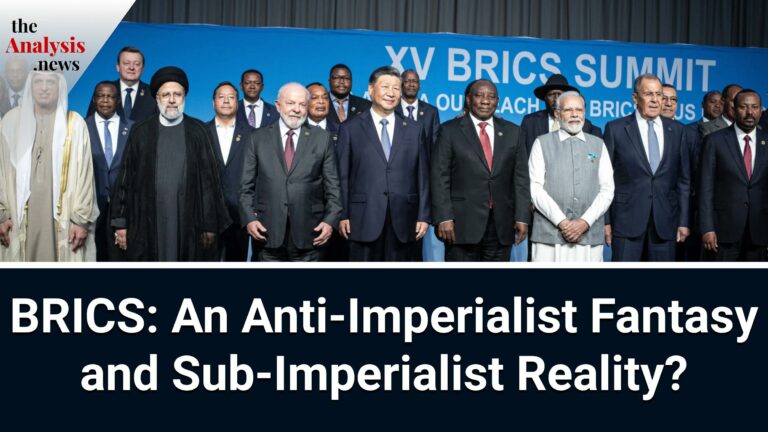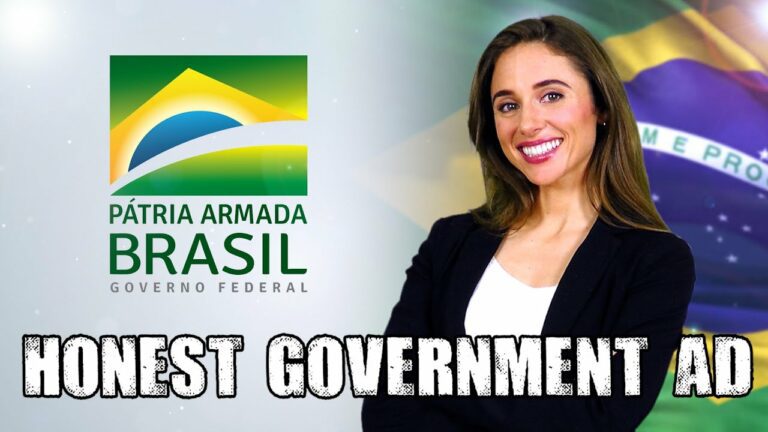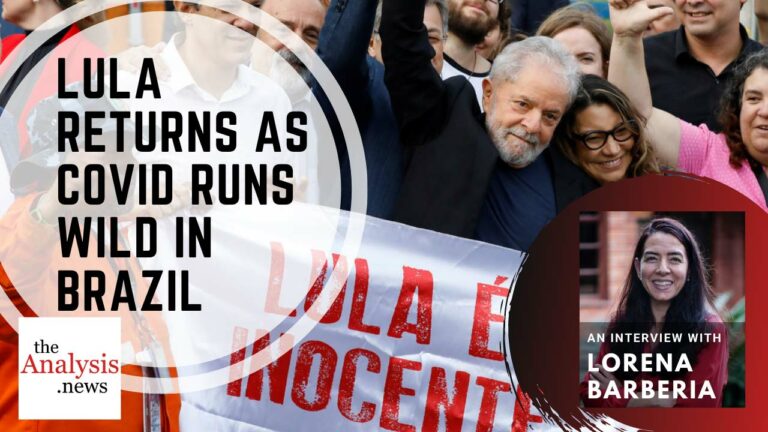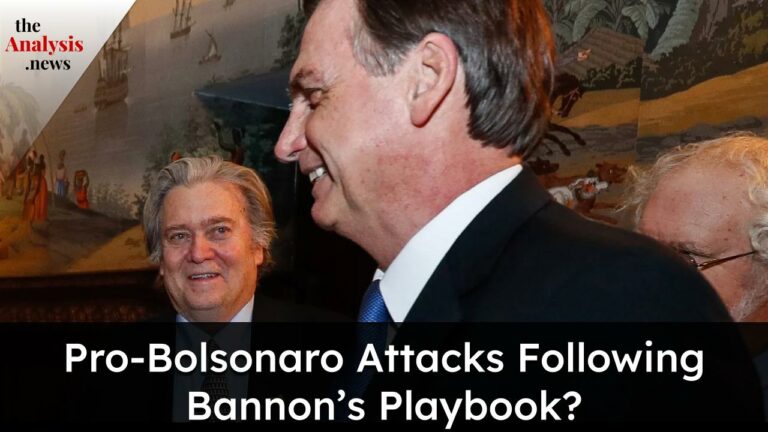Lula da Silva was inaugurated for a third non-consecutive term as president of Brazil, dramatically reversing the country’s trajectory of the past eight years. In the first few days in office, Lula presented more progressive policy changes than many believed would be possible, says freelance journalist Michael Fox.
Here is a link to Lula’s full inauguration speech in English: https://www.brasilwire.com/lulas-inauguration-speech/
Greg Wilpert
Welcome to The World on Fire. I’m your host, Greg Wilpert. Sunday, January 1, Brazil inaugurated the former labor union leader and Workers Party President Luiz Inácio Lula da Silva, also known as Lula, for a third non-consecutive term as President of Brazil. Last October, Lula narrowly won a run-off election against the right-wing incumbent Jair Bolsonaro with 50.9% of the vote. Lula had previously served two consecutive terms as president from 2003 to 2010, during Latin America’s first so-called pink tide of the early 2000s. Then his successor, Dilma Rousseff, also from the Workers Party, was removed from office in 2016 in what many have considered to be a legislative coup.
Lula himself faced prosecution for corruption and was sent to prison as he was preparing to run for president in 2018. After nearly two years of imprisonment, he was exonerated and able to run for president for a third time. Sunday’s inauguration was, in many ways, a historic event, not only because of the unusual circumstances that led to it but also because Lula presented a cabinet in which one out of three members are women.
Joining me now to take a look at what Lula’s third term as president might mean is Michael Fox. He’s a freelance journalist, former editor of the journal NACLA, and host and producer of the podcast Brazil on Fire. Thanks for joining me today, Mike.
Michael Fox
Thanks for having me, Greg.
Greg Wilpert
So, first of all, just how significant would you say is Lula’s inauguration for a third non-consecutive term as president of Brazil?
Michael Fox
I mean, it’s a complete 180. It’s a complete about-face. It’s huge. It’s a complete game-changer for Brazil. The inauguration itself was powerful, with 200,000 people in the streets. So many people are talking about hope, talking about a return to democracy. As you mentioned, there was the coup against Dilma Rousseff, and then many people saw Lula’s jailing and then Bolsonaro’s elections as all other layers of the coup. Then now, for Brazil, this is the return to democracy, the return of hope. As all of your listeners know, Bolsonaro brought in so many different things: white supremacy, fake news, and attacks against black, indigenous communities. This opens the door for a complete about-face to what we’ve had until now. The inauguration really laid the groundwork for that.
Greg Wilpert
So let’s take a look at the cabinet. First of all, as I mentioned, one out of three members are women, more or less. I think it was 11 out of 30 something, which is no doubt the highest number, I think, of any Cabinet in Brazil’s history. What do we know about some of the main members of this cabinet, and what can we expect from them?
Michael Fox
Well, the first thing is the Workers Party, which is obviously Lula’s party. It came into power with a very broad coalition of Left, Center, and center-right parties. Remember that his running mate, Vice President Geraldo Alkman, was his arch-nemesis back in 2006. He’s the guy who ran against Lula back in 2006. He really went across the aisle to bring in everybody within kind of the unity democracy camp, and that’s what his whole campaign was about. It was really about bringing everybody in as much as possible. So, of course, that’s what his cabinet also looks like.
A quarter of those seats have gone to Workers Party members, the nine seats. Those are really the key ministries for Lula. So that’s the makeup. You have roughly nine Workers Party ministries, and then the rest of the ministries are divided up amongst those other parties, the three ministries to each of the different parties.
Now, amongst the Workers Party, you have some extremely important ministries, like the Ministry of Finance with Fernando Haddad, who is the former presidential candidate who ran for the Workers Party when, of course, Lula was taken out in 2018. Flávio Dino, who is the former Governor of Maranhão, and extremely important. He battled Bolsonaro. He is one of the most arch-nemesis of Bolsonaro during his time in power, and he is now the Minister of Justice. So that’s amongst the Workers Party.
You also have– and this is really, really key, Greg. All of these new ministries, several of them, and that includes the Ministry of Labor, the Ministry of Women, the Ministry of Racial Justice, and actually, the woman, Marielle Franco’s sister, is now the Minister of Racial Justices or Racial Equality. This is extremely important because it brings in all these other sectors, and the Left won big in a lot of these different areas.
Now, the big thing that a lot of people are talking about is, of course, the Environment Ministry. Marina Silva’s back, remember, she was Environment Minister for six or seven years under Lula. She was really key in pushing back on deforestation, cutting deforestation in half in those first two years of Lula’s first government. Then they had a falling out. She ran for president several times, and then they built their relationship again, and that’s been one of the most exciting things about Lula’s campaign and seeing her back on the stage. In fact, she was just sworn in just yesterday, and the line for her swearing-in moment or for her opening ceremony was the longest of all the different ceremonies for ministers that are happening now.
Of course, the other really big key ministry that’s new is the Ministry of Indigenous Peoples, led by Sonia Guajajara, who is one of the most important indigenous rights activists in Brazil. She’s the leader of APIB [Articulação dos Povos Indígenas do Brasil], which is the largest indigenous organization. Of course, she was constantly battling against the Bolsonaro government, and she is now the Minister of Indigenous Peoples. Just to put this in perspective, first off, there was never a Ministry of Indigenous Peoples, and there was never an indigenous minister before. In fact, she was the very first minister to be sworn in on Sunday. She walked up, and she wore the feathered headdress. When they took a picture of the ministers there with Lula, she was standing right beside Lula. On the other side of Vice President Gerald Alkman was Anielle Franco, who is Marielle Franco’s sister. This is a very, very telling moment that Lula is pushing for diversity, he’s pushing for inclusiveness, and not just within the Ministry itself, but Lula actually went out and asked Joênia Wapichana if she would be the head of FUNAI [Fundação Nacional dos Povos Indígenas].
Now FUNAI is kind of the Indigenous Affairs Agency. It always has been. Although the name was the Indian Affairs Agency and it’s now the National Foundation for Indigenous People. So they’ve changed the name. She’s now the head of that, and that agency is now underneath the Ministry of Indigenous Peoples. Extremely important pushes. They’ve already been talking about wanting to demarcate 13 different indigenous territories just within this first month. So there are a lot of things that have happened. The cabinet is actually really exciting. It’s way more progressive than even people thought was possible.
There is another person that I think is important, that’s Simone Tebet, who is now the Minister of Planning and Budget. Now, she was key because she got the third most number of votes in this election. She’s from the PMDB or the MDB Party, which is a centrist right party. But man, after that first-round election, she came out just battling for Lula. She came out attacking Bolsonaro for his secret budget, saying it was potentially the largest corruption scandal in the world at the time. She was really, really active in a way that a lot of people did not expect. She now has her own cabinet seat. It’s really exciting. It’s exciting for the Left to see so many different people moving into power, into Lula’s Cabinet, with really clear visions for where they want to take this, and it’s exciting for the progressive movement, just looking forward here.
Greg Wilpert
You mentioned, just quickly, Marielle Franco and her sister Anielle being in the cabinet. Many people might not know who Marielle is. Can you summarize briefly who she is and what the significance of her sister being in the cabinet is?
Michael Fox
That’s right. So Marielle was a black lesbian City Council member from Rio de Janeiro who was gunned down in 2018. It sent shockwaves around Brazil because it showed that there was just (A) no justice, no respect for black communities, and black politicians and leadership. So protests happened across the country. It was like a Black Lives Matter moment in Brazil and around the world, really, because of what she symbolized for Brazil, and it continues to have reverberations. Her name continues to be extremely important. Anielle, her sister, then created the Marielle Franco Institute and has been trying to lift up her name ever since and that image. The fact that she is now the Minister of Racial Equality is just so key. It’s so, so important.
To put this into perspective, back in 2018, when Bolsonaro was running for power, there were Bolsonaro-allied people who actually won office, legislators who won office, who actually had picked up signs, Marielle signs. They were breaking them in this image of showing that Marielle just isn’t for Bolsonaro and for his allies. She was just worthless. The image of black communities, LGBT communities, and indigenous quilombolas communities, are worth just nothing in this country. That’s why we’ve seen so much pushback over the last four years and so much resistance from social movements. Right now, that’s why people are just so ecstatic about the potential for so much hope and possibility in this new Lula government.
Greg Wilpert
Now, what do you think we can expect from Lula in terms of his domestic policies? What are the priorities? Also, do you think that his scope of action might be rather limited, given that he does not have a majority in Congress? That is, would he even be able to pass any significant new laws?
Michael Fox
So, great questions. First off, he’s been very clear about what his focus is on domestic policies and it’s poverty alleviation. That’s what it was in his first two terms. He wants to again lift people out of poverty because, of course, we’ve seen poverty numbers have risen, inequality has risen, and hunger has risen. This is one of the things. He actually broke down crying, Greg, during his inauguration speech when he talked about people asking for money on the street and people begging for food because this is not the country that he left. When he left office with an 87% approval rating back in early 2010, Brazil had eliminated poverty. Dilma did even more on that step. So this is something that’s really key. He’s talked about bringing back health and bringing back SUS [Sistema Único de Saúde], the public state healthcare system, because, of course, that was gutted under Bolsonaro.
So much of his focus, particularly in these first coming months, is going to be to renew those systems and those agencies that were gutted and undone by Bolsonaro. We’ve already seen this, actually, just in his decrees within the first 24 hours. He blocked eight different privatizations of state businesses, including Petrobras, the state oil company, including Correios, the mail service. He redid Bolsonaro’s previous decree that was liberalizing and freeing up arms for people around the country. So he’s tightening those. He eliminated the 100-year sigilo or confidentiality that Bolsonaro had put into place for many things, kind of whatever Bolsonaro wanted to do. He passed seven different environmental decrees, including blocking mining on indigenous territories and opening up the Amazon fund again for people to be able to invest in Brazil from different countries.
That’s just what he’s done within his first 24 hours. His domestic policy is very much going to be focused on poverty alleviation. He’s also talked about, of course, wanting to stop Amazon deforestation, but at the same time, he wants to keep the economy running. This is what he was really good at back in his first two terms. He didn’t lift people out of poverty and then do it as a detriment to Brazilian businesses, but he actually lifted Brazilian businesses, were able to get them abroad and keep them making even more money than ever before, and that’s something he wants to continue to do.
He said that, of course, particularly with the Amazon, that look, “we can continue to be the breadbasket of the world and not deforest one more meter of our forest. We don’t have to cut down one more tree.” So that’s really important for him. Part of that is being able to throw money and throw resources and funds for local farmers and local small farmers. That was key. That’s something he did a lot back in his first two terms. It’s something he’s going to want to do again. It had really helped small agricultural farming. At the same time, he’s focused on his poverty alleviation stuff. He’s already reinstituted Bolsa Família, which is, of course, his conditional cash transfer program back from the 2000s. He says that poor families are going to be receiving 600 reals a month, just over $100.
So these are all really key things that aren’t actually that hard for him to do, that he’s been able to do so far. Of course, he can’t knock out the knees of important industries, agribusiness, and things like that. So that’s going to be a challenge he’s going to have, and particularly even a challenge within his own cabinet, finding the ways that he’s going to be able to push to protect the Amazon, support indigenous issues, support, say, the MST [Movimento dos Trabalhadores Rurais Sem Terra] and local small farmers at the same time as he’s not turning his back on the big agribusiness.
The other thing that was really gutted under Bolsonaro, Greg, is industry. This was something that Bolsonaro basically just turned his back on, and the whole idea under Bolsonaro was to sell off Brazilian industry as much as possible and to really focus on commodities markets and selling markets for export abroad. That was his big thing. Lula comes from a completely different perspective– developmentalism. Saying, “no, we actually need Brazilian industry. We need Brazilian businesses, and we want to help to jumpstart that around the country.” With those two visions for the world of poverty alleviation and also developmentalism, we need to build up Brazilian businesses again; they’re not a contradiction. They go hand in hand.
Now, like what you just asked about, how is he going to do this with obviously a conservative Congress? This is a big question. I think it’s maybe one of the biggest questions that a lot of people are asking because, as you know, so many people came in, Bolsonaro allies, and it is a very, very conservative Congress. At the same time, the Workers Party doesn’t have its back against the wall. In fact, the PT, at this point, has as many people in Congress as it did before the whole car wash Lava Jato scandal. So it was very clear in this last election that people were more than willing to vote for the PT at the same levels that they were doing under the early Dilma years and under the Lula years. So that is one point that a lot of people have missed when they’ve been talking about the makeup of the legislature. There is going to be a conservative legislature.
One other key thing that’s really important, though. Many of the allies of Bolsonaro in Congress are not used to doing opposition. They’re from centrist parties, what’s known as the Centrao, and these are the parties like the PMDB. Maybe they’ve jumped ship and joined more Bolsonaro parties, but these are individuals that are used to being in the middle and always joining whoever is in power. This is going to be a really interesting thing to see how they play opposition or don’t play opposition in the coming months and the coming years. I think a lot of this is going to depend on how strong Bolsonaro himself is.
I know that we’re going to get into this, but Bolsonaro has left the country. He left the country early. Some people will say he fled. Many of his supporters and his allies are not happy with him because they feel like he’s completely turned his back on him. So the question of Bolsonaro is going to be a really important question going forward, and we don’t know how to answer that right now.
In terms of the makeup of the legislature, Lula still has every possibility of pushing through things that he thinks are important. Not everything is done via the legislature. Not everything’s done in Congress and the Senate. Look at what we’ve already seen just this week from his decrees. They have been extremely important. He’s going to continue to do those in the same way that Bolsonaro– he also ruled very much by decree a lot of times. I think Lula is going to be able to do a lot more. He already has. He already has, but he’s going to be able to do a lot more than many people give him credit for.
Now, is he going to be able to completely legalize abortion? No, that’s not an issue he’s going to get traction on. Why is that? Because the Evangelical movement has grown substantially. That’s not something he’s going to be able to move on at this point. He’s able to move on to so many other things, and those have been his focus that he’s been very, very clear about for months.
Greg Wilpert
Okay, I want to turn now to Lula’s international policies, where he presumably has a little bit more leeway than he does for domestic issues. During the first pink tide, Lula, together with former President Hugo Chavez of Venezuela, they were instrumental in setting up numerous regional new bodies, such as CELAC, the Community of Latin American and Caribbean Nations, and UNASUR, the Union of South American Nations, which both fell apart when the first pink tide ended. Now, what can we expect from Lula this time around?
Michael Fox
Well, this is really, really exciting. For folks internationally, it’s one of the most exciting pieces because, of course, under Bolsonaro, Brazil has had a very not just U.S.-focused but Trump-focused foreign policy. It’s whatever is good for Trump is good for us. Of course, that left Brazil in the air over the last two years, not knowing exactly what to do once Trump was out of office two years ago. The foreign policy now is going to be completely about-face. Lula has already said that, and so has his incoming Foreign Minister, Mauro Vieira, who was actually Foreign Minister under Dilma Rousseff. He’s been very clear that he was instructed to focus on three key elements, to begin with, by Lula, and that’s first South American ties, then Latin American ties, and then African ties. Those, of course, were really important for Lula back in the 2000s. His whole thing was south-south relations, regional integration, and building those relationships with Africa for the first time. He opened up 35 new embassies during his two administrations during those years, and he traveled to more than 50 countries in eight years. I don’t know how he did it, but he did. He is a great diplomat. We saw that at COP-27 when he was there. It was only two weeks after his election. He still wasn’t even president yet, and he was received like a rock star in Egypt. That’s going to be really key for Brazil. It is kind of lifting Brazil back up onto the international sphere, being able to dialogue with the world’s richest countries, but not bowing down to those richest countries and really being able to keep Brazil on this international level and have a relationship with everybody.
We saw that at the inauguration. I think this is really interesting, Greg. Sixty-five different foreign delegations came to Lula’s inauguration, including nineteen different heads of state. We’ve never seen anything like this before. During that, while we were watching the passing of the different foreign delegations, first you saw Ukraine; the Ukrainian delegation came and shook hands with Lula, and right behind them was Russia. So it shows how Lula is willing to dialogue with everybody in the world, and he’s going to have solid relationships with everybody. He is the great negotiator in that sense.
Now, regional integration and south-south ties are one of the most exciting things about this whole question because this is pink tide 2.0, really, except for the fact we don’t have the revolutionary socialism of the 21st century. It’s not the revolutionary pink tide. Many of those governments maybe came to power kind of eking it out, just like Lula. He won by 2 million votes, 2%. But still, most of the countries in Latin America at this point are Left or left-leaning, and that’s going to be really important. Lula has already said he wants to go full speed ahead with UNASUR. Most likely, his first international meeting is going to be in Argentina at the CELAC Conference, where he’s going to reannounce Brazil’s reentry into the international meeting. Many people are talking about the importance of a new UNASUR and the possibility of reinvigorating UNASUR or kickstarting it again like we haven’t seen in a very long time. So this is really, really key. In fact, what Lula’s Foreign Minister said, and Lula has said as well, “it is not just building these bodies, but going even further,” is what they want to see. What does regional integration look like going beyond what we saw back in the 2000s? So it’s really exciting.
We’re going to see what these next couple of months mean and what they look like as the different countries are dialoguing. But just to give you a little bit of sense of what we’re looking at, six different heads of state leaders met with Lula just the day after his inauguration, talking about how do we go forward, what are we doing, what does trade look like, what are our relations look like? So that’s what we’re going to be seeing in the coming months.
Greg Wilpert
I just want to turn briefly to the point that you made earlier about the narrow victory that Lula had and the fact, of course, that Lula and Bolsonaro’s camps were so far apart in terms of politically speaking. Does that mean that Brazilian society is this deeply divided? How do you make sense of that? There’s such a big divide, so to speak, and such a narrow divide, too, in the sense of the population’s support for each side.
Michael Fox
So there are several different things to unpack here. First off, absolutely, it’s deeply divided, and it’s divided like it hasn’t been before. It’s divided almost like what we saw in Venezuela back in the 2000s or like what we see in the United States right now with Trump. I mean, that’s the legacy of the Trump image and the Trump style of politics that Bolsonaro inherited and took on completely: pushing fake news and pushing this nationalist agenda, attacking, attacking, attacking the other side and the Left and whatnot. It is extremely concerning.
One of the things and part of the reason for this division is obviously the fake news, the misrepresentation of things we saw even just around the polls, the whole electoral system, and everything under the elections. This was one of those moments; this election was one of those moments that was the most twisted and contorted in terms of fake news and just new misrepresentation and misinformation being pushed just on the daily by Bolsonaro’s campaign. So that’s extremely concerning.
Look, the thing is, though, Greg, a lot of people I talked to during the elections when I was there, and I was there reporting from around the country, a lot of them are completely on board with Bolsonaro. What they told me even ahead of the second round vote was, “look, if Bolsonaro, first off, we know that we’re in the majority,” Bolsonaro’s people were the majority, “so if Bolsonaro doesn’t win, well, then we know something was wrong with the electoral system, so he should have won.” That’s why we saw his people out in the streets later on because the idea there is about faith. It’s almost like a religious conviction. It’s not about actually having a democratic play and trying to figure out how we work together in a democratic system. No, it’s about destroying your opponent. That’s what we’ve seen just in the last little bit. That’s why we had, around the country, people rallying, Bolsonaro supporters rallying in front of military barracks, calling on the military to turn out to block Lula’s election and to keep Bolsonaro in power. People actually believe that. We’re talking about thousands of Bolsonaro supporters who believed that if they protested in front of the military barracks, the military was going to support them. The fact that they actually believe that, and they continue to do it for months and months, and they actually thought that Bolsonaro was going to find a way to enact some sort of a coup at some point is really concerning for what it means for Brazilian democracy, for what it means going forward, and for what it means for Lula.
I think most likely what we’re going to be seeing in the coming weeks and in the coming months, although right now, there’s kind of this unclear phase about how Bolsonaro’s people are going to organize. There’s almost no doubt that they are going to organize as an opposition and as a very clear opposition, particularly in the streets, particularly with fake news that’s going to come against Lula, and people are going to be out in the streets just like Trump supporters have been out there. We’ve even seen this in the news right now, Greg. Since Lula’s inauguration, you’ve seen over Twitter, and social media people are saying, “look, Lula never he never walked up the presidential palace. He never was inaugurated. He never swore with his hand up in Congress. It didn’t happen. At any point, Bolsonaro is going to fly back from Florida, and he’s going to be taking power.” People actually believe this, and it’s on social media. This is what’s passing over What’s App in the social networks amongst Bolsonaro supporters. So it’s really concerning that this is a real reality. It shows the polarization, but it also shows the very clear intent by a certain group of people to attack Brazilian democracy, to gut the potential for Lula to be successful.
This is one of the things that the Supreme Court, Brazilian Supreme Court has been very clear on, and they’ve been investigating for several years the attacks against Brazilian democracy. This is why many people have been talking about potential accusations and crimes against Bolsonaro and potentially that he might actually stand trial for some of these things. This is why, from what we heard from reports, was that when he left two days early, that’s because his lawyers, from what we understand, advised him, “hey, it might be a good idea for you to skip town for a little bit and get out of the country because they might be coming after you.”
The very first day after Lula’s inauguration, PSOL [Partido Socialismo e Liberdade], the small Left party that had split from the Workers Party back in 2005 but is now back in the coalition, they actually requested from the Supreme Court that the Supreme Court ask for preventative prison from Bolsonaro for crimes, for the crimes against humanity, for lying during the elections, for attacks on democracy and pushing coups. There are several different potential crimes and accusations against Bolsonaro going back to, of course, the Senate inquiry into COVID-19, which lasted for almost eight or nine months. When they came out, they said that Bolsonaro was responsible for as many as nine different crimes, including crimes against humanity. So all this is kind of putting this into– that’s how come, most likely, Bolsonaro is right out of the country right now, but we’re going to see what happens going forward.
Greg Wilpert
Now, just turning to what Lula can do to counter these dangers, what about his own party, the Workers Party, the PT? Lula is said to enjoy a massive amount of popularity, often far beyond his own party. First of all, is that still true? Some people even say that he has lost touch with the grassroots. Is there anything to that story? If so, what is or has the PT done to connect with the grassroots?
Michael Fox
Well, I think the first thing, Greg, is just to understand that this electoral campaign that brought Lula to power, like I said, was a very broad coalition. It wasn’t just with other parties. It was social movements and grassroots movements. It was broader than anything we’ve ever seen before. In fact, the MST, working together with other social movements, actually created five to 7,000 different popular committees in urban communities and cities all up and down Brazil with the idea of exactly that– being able to organize for Lula’s election, but then be able to continue to organize in those communities long beyond that. Some people have had that criticism around the PT that they lost touch with the grassroots, but that criticism is actually pretty old. That’s like, from a decade ago at a time when their local grassroots committees had failed, when the PT had been in power for a very long time.
What we’ve seen since the coup against Dilma Rousseff, and particularly since Lula’s jailing, is this overwhelming organization from below, from the grass, from grassroots organizations, from movements, unions, and political parties behind Lula, behind Lula to (A), to get him out of jail, and to (B), to get him into power. I mean, this is like the ultimate rags-to-riches story, a political prisoner comeback. Here he is, and he’s just come to office. This is huge. People in Brazil realize this. I mean, Lula represents the working class and the poor.
I’ll tell you what, Greg, when I was in Recife, which is northeastern Brazil, State of Pernambuco, which of course is where Lula’s from, this is the capital of that. There was a big rally there for Lula where was where he arrived. Every single person I talked to, everybody said, “Lula is our guy. Lula helped me go to school. He built universities where I was able to study. Lula is the hero of the working class.” Particularly in the northeast, Lula won this election because of the northeast, Greg. He won roughly 70% in northeastern Brazil, whereas in the rest of the country, he either lost or he was very close. So, I mean, a lot of people were talking right after the election about how northeastern Brazil saved Brazil. It’s very true.
Even in São Paulo, remember, Lula’s trajectory is super interesting because he was born poor in northeastern Brazil. He comes young to São Paulo with his family in search of work. Many people I met on the streets of São Paulo on the night that Lula won; on that night, almost everybody I talked to said, “I’m proud. I’m from Pernambuco. I’m from this state. I’m from northeastern Brazil. I’m here because Lula represents me.” So absolutely, he still is extremely important, extremely, extremely popular.
Now, some people, obviously, he lost some support because they still believe that he was corrupt or they still don’t understand what went down. All of the convictions, every one of the accusations against Lula, have all been tossed out in one court or another in Brazil. So it’s just ridiculous to believe that those convictions were real. Of course, they were done by biased judge Sergio Moro with the idea of tanking him and blocking his ability to return to power. In 2018, Sergio Moro, by the way, who then became Justice Minister under Bolsonaro and who is now a Senator who just won Senate in this last election. He will, I’m sure, be very loud, as loud as he possibly can be. But no, Lula is extremely important for the grassroots. The grassroots is now organized and more kind of on fire and excited than ever before. That’s why this election was so important. That’s why Lula was so important.
So it’ll be interesting to see how they continue to keep the grassroots mobilized. This is something that João Stedile talked about just before the first-round vote in a press conference I attended in São Paulo. He’s one of the longtime founders of the MST, the landless workers’ movement, of course, one of the largest social movements in the Americas. He said, “what we need is a popular grassroots movement from below like we haven’t seen in decades. They just need to push Lula all they can.” Of course, there will be other interests, there’ll be other parties, and there’ll be other people trying to push Lula in different directions. Obviously, the grassroots needs to keep organized. Right now, at this point, there is so much unity from beyond pushing, beyond Bolsonaro. Everybody’s had their back against the wall.
Right now, I was talking to somebody yesterday who is involved in the indigenous movement, and he said, “right now, we’re feeling three things. We’re feeling alleviation relief, we’re feeling excitement, like celebration, commemoratory, and we’re feeling hope.” And that’s the feeling on the ground right now. Now we’re going to see what the coming months– this is the honeymoon period, of course. In the coming months, things will get more complicated in one way or the other, and when different factions are trying to vie for this or that.
Right now, Lula’s connection with the grassroots and those grassroots organizing is like never before. Just an example to really define that, Greg. Traditionally, in inauguration ceremonies, it’s always the previous president who passes the presidential sash onto the incoming president. They walk together up the presidential ramp to Planalto Palace, which, of course, is the presidential palace, and then the old president passes the sash on to Lula. Of course, Bolsonaro left two days early, so he was not passing the sash. Many people were asking, I mean, this was the big question for days. What is going to happen? Who’s going to pass the sash on to Lula? Is it going to be Dilma? Is it going to be Bolsonaro’s vice president? What’s going to happen? And the way they did it was so perfect, Greg. They brought together this group of people that just symbolized the pure diversity of Brazil and who are Brazilians. You had a cook. You had a black trash collector who comes from a family of catadores and recyclers in the streets. You had a disabled activist—someone from the LGBT community. You had a young child, a ten-year-old child, black child, and they all came together. Oh, and of course, Chief Raoni, who’s the most important indigenous leader in the history of Brazil. He’s the guy who did all the tours back in the ’80s with Sting and who was actually pretty critical of the Dilma Rousseff administration back in the early 2010s. They all walked up the presidential ramp together, arm in arm, and they put the presidential sash onto Lula. That just signified just so clearly that this is going to be a government, or Lula wants this to be a government by the people and for the people, in which the people are giving Lula the power to be in charge. He’s going to try and hold on to that to be sure that he’s able to push, continue to push his policies.
One of the things we heard from Sonia Guajajara, for instance, she is now the Minister of Indigenous Peoples. She said in her very first talk with supporters that she was in conversation all the time during the campaign with Lula. Always talking, “hey, what’s going on?” They’d see them in different places. They kept talking about what they wanted. Then she was the one who said, “let’s do a Ministry of Indigenous Peoples, let’s do it.” Within days later, Lula is talking about that up and down the country. He did it. He made good on his promise. There she is. She’s in power. So indigenous peoples are more excited than ever. People up and down the country are more excited than ever. There is hope for the first time in a very long time.
Greg Wilpert
Okay, well, on that note, we’re going to leave it there for now. I was speaking to Michael Fox, freelance journalist, host, and producer of the podcast Brazil on Fire. Thanks again, Mike, for having joined me today.
Michael Fox
Thanks so much, Greg. A pleasure to be here.
Greg Wilpert
Thank you to our audience for having joined The World on Fire. The title’s similarity to Mike’s podcast is just a coincidence. Thanks again.
Greg Wilpert
Bienvenido a The World on Fire. Soy su anfitrión, Greg Wilpert.
El domingo, 1 de enero, Brasil inauguró al exdirigente sindical y presidente del Partido de los Trabajadores, Luiz Inácio da Silva, también conocido como Lula, por un tercer mandato no consecutivo como presidente de Brasil. En octubre pasado, Lula ganó por un estrecho margen la segunda vuelta electoral contra el presidente en ejercicio de derecha, Jair Bolsonaro, con el 50,9 % de los votos.
Lula había servido previamente dos mandatos consecutivos como presidente, de 2003 a 2010, durante la primera “Marea Rosa” de América Latina a principios de la década de 2000. Luego, su sucesora, Dilma Rousseff, también del Partido de los Trabajadores, fue destituida de su cargo en 2016 en lo que muchos han considerado un golpe legislativo. El propio Lula fue juzgado en un proceso por corrupción y fue encarcelado mientras se preparaba para presentarse como presidente en 2018. Después de casi dos años de prisión, fue exonerado y pudo presentarse para presidente por tercera vez.
La investidura del domingo fue en muchos sentidos un acontecimiento histórico, no solo por las circunstancias inusuales que la precedieron, sino también porque Lula presentó un Gabinete en el que uno de cada tres miembros son mujeres.
Me acompaña ahora para echar un vistazo a lo que podría significar el tercer mandato de Lula como presidente Michael Fox. Es periodista independiente, exeditor de la revista NACLA y presentador y productor del pódcast Brazil on Fire.
Gracias por acompañarme hoy, Mike.
Michael Fox
Gracias por recibirme, Greg.
Greg Wilpert
Entonces, en primer lugar, ¿qué importancia dirías que tiene la toma de posesión de Lula para un tercer mandato no consecutivo como presidente de Brasil?
Michael Fox
Bueno, es un giro de 180 grados. Es un completo cambio de actitud. Es enorme. Lo cambia todo para Brasil. La investidura en sí fue importante, 200 000 personas en las calles. Mucha gente está hablando de esperanza, de un retorno a la democracia. Como has dicho, hubo un golpe de Estado contra Dilma Rousseff. Luego, mucha gente vio el encarcelamiento de Lula y la elección de Bolsonaro como diferentes capas del golpe. Y ahora, para Brasil, este es el regreso a la democracia, el regreso de la esperanza.
Como todos tus oyentes saben, Bolsonaro introdujo muchas cosas: supremacía blanca, noticias falsas, y ataques contra comunidades negras e indígenas. Esto abre la puerta a un cambio radical con respecto a lo que hemos tenido hasta ahora. La investidura realmente sentó las bases para eso.
Greg Wilpert
Entonces, primero echemos un vistazo al Gabinete. Como he dicho, uno de cada tres miembros son mujeres, más o menos. Creo que fueron 11 de 30 y algo, que sin duda es el número más alto, creo, de cualquier Gabinete en la historia de Brasil. ¿Qué sabemos de algunos de los principales miembros de este Gabinete y qué podemos esperar de ellos?
Michael Fox
Bueno, lo primero es el Partido de los Trabajadores, que obviamente es el partido de Lula. Llegó al poder con una coalición muy amplia de partidos de izquierda, centro y centro-derecha. Recuerda que su compañero de candidatura, el vicepresidente Geraldo Alckmin, fue su archienemigo allá por 2006. Es el que compitió contra Lula en 2006. Realmente trabajó con la oposición para incluir a todos dentro del bando de la democracia de unidad, y de eso se trató toda su campaña. Realmente se trataba de incluir a todos tanto como fuera posible.
Entonces, por supuesto, esa es la composición de su Gabinete. Una cuarta parte de esos puestos han ido a parar a miembros del Partido de los Trabajadores, los nueve puestos. Esos son realmente los ministerios clave para Lula. Esa es la composición. Tiene aproximadamente nueve ministerios del Partido de los Trabajadores, y el resto de los ministerios se reparten entre esos otros partidos, los tres ministerios a cada uno de los partidos.
Entre el Partido de los Trabajadores, vemos algunos ministerios extremadamente importantes, como el Ministerio de Hacienda, con Fernando Haddad, el excandidato presidencial por el Partido de los Trabajadores cuando, por supuesto, sacaron a Lula en 2018. Flávio Dino, el exgobernador de Maranhão, y muy importante. Luchó contra Bolsonaro. Es uno de los archienemigos de Bolsonaro durante su etapa en el poder, y ahora es el ministro de Justicia. Eso es entre el Partido de los Trabajadores.
También tienes… Y esto es muy muy clave, Greg. Todos estos nuevos ministerios, varios de ellos, y eso incluye el Ministerio de Trabajo, el Ministerio de la Mujer, el Ministerio de Justicia Racial… Y, de hecho, la hermana de Marielle Franco, es ahora ministra de Justicia Racial o Igualdad Racial. Esto es extremadamente importante porque incluye a todos estos otros sectores, y la izquierda ganó mucho en muchas de estas áreas.
Ahora, lo más importante de lo que habla mucha gente es, por supuesto, el Ministerio de Medio Ambiente. Ha vuelto Marina Silva, recordemos que fue ministra de Medio Ambiente durante seis o siete años con Lula. Ella fue realmente clave para hacer retroceder la deforestación, redujo la deforestación a la mitad en esos primeros dos años del primer Gobierno de Lula. Luego tuvieron una pelea, se presentó para presidenta varias veces, y luego arreglaron sus diferencias, y esa ha sido una de las cosas más interesantes de la campaña de Lula, verla de nuevo en el escenario. De hecho, ella prestó juramento ayer, y la frase para su momento de juramento, o su ceremonia de apertura, fue la más larga de todas las ceremonias para ministros que están teniendo lugar ahora.
Por supuesto, el otro ministerio realmente importante, uno nuevo, es el Ministerio de Pueblos Indígenas, dirigido por Sônia Guajajara, una de las activistas más importantes por los derechos indígenas en Brasil. Es líder de la APIB [Articulação dos Povos Indígenas do Brasil], que es la organización indígena más grande. Por supuesto, ella estuvo luchando constantemente contra el Gobierno de Bolsonaro, y ahora es la ministra de Pueblos Indígenas. Solo para poner esto en perspectiva, en primer lugar, nunca ha habido un Ministerio de Pueblos Indígenas, y nunca antes ha habido un ministro indígena. De hecho, ella fue la primera ministra en prestar juramento el domingo. Subió y llevaba el tocado de plumas. Cuando tomaron la foto de los ministros que estaban con Lula, ella estaba justo al lado de Lula. Del otro lado del vicepresidente Geraldo Alkmin estaba Anielle Franco, hermana de Marielle Franco. Este es un momento muy muy revelador de que Lula está impulsando la diversidad, está luchando por la inclusión, y no solo dentro del propio ministerio: Lula salió y le pidió a Joênia Wapixana que fuera la directora de la FUNAI [Fundación Nacional del Indio]. FUNAI es una especie de Agencia de Asuntos Indígenas, siempre lo ha sido. Aunque el nombre era la Agencia de Asuntos Indígenas y ahora es la Fundación Nacional del Indio. Así que han cambiado el nombre. Ella es ahora la dirigente, y esa agencia ahora depende del Ministerio de Pueblos Indígenas. Avances importantísimos. Ya han estado hablando de querer demarcar 13 territorios indígenas solo en este primer mes. Así que han pasado muchas cosas. Es realmente emocionante. El Gabinete es mucho más progresivo de lo que la gente pensaba que era posible.
Hay otra persona que creo que es importante, Simone Tebet, quien ahora es la ministra de Planificación y Presupuesto. Ella fue clave porque obtuvo el tercer mayor número de votos en esta elección. Ella es del PMDB, o del Partido MDB, que es un partido de centro-derecha. Pero, después de la primera vuelta, hizo declaraciones en favor de Lula. Atacó a Bolsonaro por su presupuesto secreto, diciendo que era potencialmente el escándalo de corrupción más grande del mundo en ese momento. Estuvo muy muy activa de una manera que mucha gente no esperaba. Ahora tiene su propio puesto en el Gabinete. Es realmente emocionante. Es emocionante para la izquierda ver a tanta gente diferente ascender al poder, al Gabinete de Lula, con visiones muy claras de hacia dónde quieren llevar esto, y es emocionante para el movimiento progresista de cara al futuro.
Greg Wilpert
Rápidamente, has hablado de Marielle Franco y que su hermana Anielle estaba en el Gabinete. Es posible que muchas personas no sepan quién es Marielle. ¿Puedes resumir brevemente quién es ella y cuál es el significado de que su hermana esté en el Gabinete?
Michael Fox
Así es. Marielle era una concejala lesbiana negra de Río de Janeiro que fue asesinada a tiros en 2018. Causó conmoción en todo Brasil porque demostró que simplemente no había justicia, no había respeto por las comunidades negras y los políticos y líderes negros. Así que hubo protestas en todo el país. Fue como un momento Black Lives Matter en Brasil y en realidad en todo el mundo, por lo que simbolizó para Brasil, y sigue habiendo reverberaciones. Su nombre sigue siendo extremadamente importante. Anielle, su hermana, creó entonces el Instituto Marielle Franco y ha estado tratando de levantar su nombre y su imagen desde entonces.
El hecho de que ahora sea la ministra de Igualdad Racial es clave. Es muy importante. Para poner esto en perspectiva, en 2018, cuando Bolsonaro se presentó para el cargo, hubo personas aliadas de Bolsonaro que ocuparon cargos, legisladores, que cogieron carteles de Marielle y los rompieron, en esta imagen de demostrar que Marielle simplemente no es… Para Bolsonaro y sus aliados, ella simplemente no valía nada. Las comunidades negras, las comunidades LGBT y las comunidades de indios quilombolas no valen nada en este país.
Hemos visto un gran retroceso en los últimos cuatro años y una gran resistencia de los movimientos sociales. En este momento, es por eso que la gente está tan entusiasmada con el potencial de tanta esperanza y posibilidades en este nuevo Gobierno de Lula.
Greg Wilpert
Bien, ¿qué crees que podemos esperar de Lula en términos de sus políticas internas? ¿Cuáles son las prioridades? Además, ¿piensas que su ámbito de acción podría ser más bien limitado, dado que no tiene mayoría en el Congreso? Es decir, ¿sería capaz de aprobar nuevas leyes significativas?
Michael Fox
Bien, excelentes preguntas. En primer lugar, ha sido muy claro acerca de cuál es su enfoque en las políticas internas, y es la mitigación de la pobreza, como en sus dos primeros mandatos. Quiere sacar a la gente de la pobreza nuevamente porque, por supuesto, hemos visto que las cifras de pobreza han aumentado, ha aumentado la desigualdad y ha aumentado el hambre. Esta es una de las cosas. De hecho se le quebró la voz, Greg, durante su discurso de toma de posesión cuando habló de la gente que pide dinero en la calle y pide comida porque este no es el país que él dejó. Cuando dejó el cargo con un índice de aprobación del 87 % a principios de 2010, Brasil había eliminado la pobreza. Dilma hizo aún más en ese aspecto.
Así que esto es realmente clave. Ha hablado de recuperar la seguridad social y de recuperar el SUS [Sistema Único de Saúde], el sistema público de salud estatal, porque, por supuesto, fue destruido por Bolsonaro. Gran parte de su enfoque, particularmente en estos primeros meses, va a ser renovar esos sistemas y esas agencias que fueron despojadas y deshechas por Bolsonaro.
Ya hemos visto esto, en realidad, en sus decretos solo en las primeras 24 horas. Bloqueó ocho privatizaciones de empresas estatales, incluyendo Petrobras, la petrolera estatal, y Correios, el servicio de correos. Rehizo el decreto anterior de Bolsonaro que liberalizaba la tenencia de armas para la gente de todo el país. Lo ha hecho más estricto. Ha eliminado el sigilo, o confidencialidad, de 100 años que Bolsonaro había puesto para muchas cosas, cualquier cosa que Bolsonaro quisiera hacer. Y ha aprobado siete decretos ambientales diferentes, incluyendo el bloqueo de la minería en territorios indígenas y la apertura nuevamente del Fondo Amazonia para que las personas de otros países puedan invertir en Brasil.
Todo esto es lo que ha hecho en sus primeras 24 horas. Pero su política interna se centrará en gran medida en la mitigación de la pobreza.
También ha hablado, por supuesto, de querer detener la deforestación del Amazonas, pero al mismo tiempo quiere mantener la economía en marcha. Esto es en lo que fue realmente bueno en sus dos primeros mandatos: no sacó a la gente de la pobreza en detrimento de las empresas brasileñas, sino que levantó los negocios brasileños y los llevó al extranjero para que siguieran ganando aún más dinero que nunca, y eso es algo que quiere seguir haciendo. Dijo que, por supuesto… Particularmente con el Amazonas, dijo: “Podemos seguir siendo el granero del mundo y no deforestar ni un metro más de bosque, no tenemos que talar un árbol más”.
Así que eso es muy importante para él. Y parte de eso es poder poner dinero y recursos y fondos para los agricultores locales y los pequeños agricultores locales, porque eso era clave. Eso es algo que hizo a menudo en sus dos primeros mandatos. Es algo que va a querer hacer de nuevo, realmente ayudar a los pequeños agricultores al mismo tiempo que se enfoca en la mitigación de la pobreza. Ya ha reinstituido Bolsa Familia, que es, por supuesto, su programa de transferencia de efectivo condicional en la década de 2000, por el que las familias pobres van a recibir 600 reales al mes, poco más de 100 dólares.
Estas son todas las cosas realmente clave, que en realidad no son tan difíciles de hacer para él, que ha podido hacer hasta ahora. Por supuesto que no puede neutralizar las industrias importantes, agronegocios y cosas por el estilo. Así que va a ser un desafío para él, y particularmente incluso un desafío dentro de su propio Gabinete, encontrar maneras para proteger el Amazonas, apoyar los temas indígenas, apoyar, digamos, al MST y a los pequeños agricultores locales, sin darle la espalda a la agroindustria.
La otra cosa que realmente fue destruida bajo Bolsonaro, Greg, es la industria. Esto fue algo a lo que Bolsonaro básicamente le dio la espalda, y toda la idea bajo Bolsonaro era vender la industria brasileña tanto como fuera posible y centrarse realmente en los mercados de productos básicos y los mercados de venta para la exportación en el extranjero. Ese era su principal objetivo.
Lula viene desde una perspectiva completamente diferente, el desarrollismo, diciendo: “No, en realidad necesitamos la industria brasileña, necesitamos empresas brasileñas y queremos ayudar a impulsar eso en todo el país”. Así que estas dos visiones para el mundo, la mitigación de la pobreza y también el desarrollismo de “tenemos que reconstruir las empresas brasileñas de nuevo”, no son contradictorias, van de la mano.
En cuanto a lo que acabas de preguntar acerca de cómo va a hacer esto obviamente con un Congreso conservador, esta es una gran pregunta, creo que es quizá una de las preguntas más importantes que mucha gente se hace, porque como sabes, entraron muchos aliados de Bolsonaro, y es un Congreso muy muy conservador, pero al mismo tiempo, el Partido de los Trabajadores no tiene la espalda contra la pared. De hecho, el PT en este momento tiene tanta gente en el Congreso como antes de todo el escándalo de la Operación Autolavado, Lava Jato. Quedó muy claro en las últimas elecciones que la gente estaba más que dispuesta a votar por el PT al mismo nivel que en los primeros años de Dilma y en los años de Lula. Ese es un punto que muchas personas han pasado por alto cuando han estado hablando sobre la composición de la legislatura. Pero va a haber una legislatura conservadora.
Sin embargo, otra cosa clave que es realmente importante, muchos de los aliados de Bolsonaro en el Congreso no están acostumbrados a hacer oposición. Son de partidos de centro, lo que se conoce como el centrão, y estos son los partidos como el PMDB, o que abandonaron el barco y se unieron a otros partidos de Bolsonaro. Pero estos son individuos que están acostumbrados a estar en el medio y siempre se unen a quien esté en el poder, ¿no?
Entonces, esto va a ser algo realmente interesante, ver si ejercen como oposición o no en los próximos meses y los próximos años. Creo que mucho de esto va a depender de lo fuerte que sea el propio Bolsonaro. Y sé que hablaremos de esto, pero Bolsonaro se ha ido del país. Salió pronto del país. Algunas personas dirán que huyó. Y muchos de sus seguidores y sus aliados no están contentos con él porque creen que les ha dado la espalda por completo.
La cuestión de Bolsonaro va a ser una cuestión realmente importante en el futuro y no sabemos cómo responderla en este momento. Pero en términos de la composición de la legislatura, Lula todavía tiene todas las posibilidades de implementar las cosas que cree que son importantes, porque no todo se hace a través de la legislatura, no todo se hace en el Congreso y el Senado. Quiero decir, lo que ya hemos visto esta semana de sus decretos ha sido extremadamente importante. Va a seguir haciéndolo. Y Bolsonaro también gobernó por decreto muchas veces. Lula es en realidad… Creo que Lula podrá hacer mucho más. Ya lo ha hecho. Ya lo ha hecho. Pero va a ser capaz de hacer mucho más de lo que mucha gente cree.
Ahora, ¿va a poder legalizar por completo el aborto? No, en ese tema no vamos a ver un avance. ¿Y por qué? Porque el movimiento evangélico ha crecido sustancialmente. Eso no es algo que pueda seguir adelante en este momento. Pero es capaz de avanzar en muchas otras cosas, y ese ha sido su enfoque, ha sido muy muy claro durante meses.
Greg Wilpert
Bueno, quiero pasar ahora a las políticas internacionales de Lula, donde presumiblemente tiene un poco más de libertad que en asuntos nacionales.
Durante la primera Marea Rosa, Lula, junto con el expresidente de Venezuela Hugo Chávez, tuvieron un papel decisivo en la creación de numerosos organismos regionales nuevos, como la CELAC, la Comunidad de Estados Latinoamericanos y Caribeños, y UNASUR, la Unión de Naciones Suramericanas, que se desmoronaron cuando terminó la primera Marea Rosa. Ahora bien, ¿qué podemos esperar de Lula esta vez?
Michael Fox
Bueno, esto es muy muy emocionante para la gente a nivel internacional. Es una de las piezas más emocionantes. Porque, por supuesto, bajo Bolsonaro, Brasil ha tenido una política exterior no solo centrada en Estados Unidos, sino también centrada en Trump. Es “lo que sea bueno para Trump es bueno para nosotros”. Y, por supuesto, eso dejó a Brasil en el aire durante los últimos dos años, sin saber exactamente qué hacer cuando Trump dejó el cargo hace dos años.
Pero la política exterior ahora va a dar un giro. Y eso ya lo ha dicho Lula, y también su ministro de Relaciones Exteriores entrante, Mauro Vieira, quien en realidad fue canciller de Dilma Rousseff. Ha dejado muy claro que, para empezar, Lula le indicó que se centrara en tres elementos clave, que son: primero, los lazos sudamericanos, luego los lazos latinoamericanos, y luego los lazos africanos. Y estos, por supuesto, fueron muy importantes para Lula en la década de 2000. Hizo hincapié en las relaciones sur-sur, la integración regional, construir esas relaciones con África por primera vez. Abrió 35 nuevas embajadas durante sus dos administraciones durante esos años, y viajó a más de 50 países en ocho años. No sé cómo lo hizo, pero lo hizo. Y es el gran diplomático. Lo vimos en la COP 27 cuando estuvo allí. Fue solo dos semanas después de su elección. Todavía ni siquiera era presidente y fue recibido como una estrella de rock en Egipto.
Eso va a ser realmente clave para Brasil, elevar a Brasil de nuevo hacia la esfera internacional, poder dialogar con los países más ricos del mundo, pero sin doblegarse ante los países más ricos, sino realmente ser capaz de mantener a Brasil en este nivel internacional y tener una relación con todos.
Eso lo vimos en la investidura. Creo que esto es muy interesante, Greg. A la toma de posesión de Lula acudieron 65 delegaciones extranjeras, 19 jefes de Estado. Nunca antes habíamos visto algo así. Y durante eso, mientras observábamos el paso de las distintas delegaciones extranjeras, primero vimos a Ucrania, la delegación ucraniana, que pasa y le da la mano a Lula, y justo detrás de ellos estaba Rusia. Así que muestra cómo tienes… Lula está dispuesto a dialogar con todo el mundo, va a tener relaciones sólidas con todo el mundo. Es el gran negociador en ese sentido.
Ahora bien, la integración regional y los lazos sur-sur es una de las cosas más emocionantes de todo este tema, porque esto es verdaderamente la Marea Rosa 2.0, excepto por el hecho de que no tenemos el socialismo revolucionario del siglo XXI. No es la Marea Rosa revolucionaria. Y muchos de esos Gobiernos quizá llegaron al poder por un margen escaso, como Lula. Ganó por 2 millones de votos, el 2 %. Pero aun así, la mayoría de los países de América Latina en este momento son de izquierda o se inclinan hacia la izquierda, y eso va a ser muy importante.
Lula ya ha dicho que quiere avanzar a toda velocidad con UNASUR. Lo más probable es que su primera reunión internacional sea en Argentina en la conferencia de la CELAC, donde va a anunciar el reingreso de Brasil a la palestra internacional. Y mucha gente está hablando de la importancia de una nueva UNASUR y la posibilidad de revitalizar UNASUR, o reactivarla, como no hemos visto en mucho tiempo. Así que esto es realmente clave. Y de hecho, lo que dijo el ministro de Exteriores de Lula, y lo ha dicho también Lula, no es solo construir estas instituciones, sino ir más allá, eso es lo que quieren ver. Cómo se dibujará la integración regional más allá de lo que vimos en la década de 2000. Así que es realmente emocionante.
Vamos a ver qué ocurre en estos próximos meses a medida que los países comiencen un diálogo. Pero solo para darte una idea de lo que estamos viendo, seis líderes y jefes de Estado se reunieron con Lula justo el día después de su toma de posesión, hablando de “cómo avanzamos desde aquí, qué vamos a hacer, cómo está el comercio, cómo están nuestras relaciones”. Así que eso es lo que vamos a ver en los próximos meses.
Greg Wilpert
Solo quiero referirme brevemente al punto que mencionaste antes sobre la estrecha victoria que tuvo Lula y el hecho, por supuesto, de que los bandos de Lula y Bosonaro estaban tan alejados políticamente hablando.
¿Significa eso que la sociedad brasileña está tan profundamente dividida? ¿Cómo le das sentido a eso, que exista una división tan grande, por así decirlo, y una división tan cerrada también, en el sentido del apoyo de la población a cada bando?
Michael Fox
Hay varias cosas que analizar aquí.
En primer lugar, sí, absolutamente, está profundamente dividida, y está dividida como nunca antes. Es casi como lo que vimos en Venezuela en la década de 2000. Como lo que vemos en los Estados Unidos en este momento con Trump. Quiero decir, eso es lo que… Ese es el legado de la imagen de Trump y el estilo político de Trump que Bolsonaro heredó y asumió por completo, las noticias falsas y la política nacionalista, atacando, atacando, atacando al otro bando y a la izquierda y todo eso. Y es extremadamente preocupante. Una de las cosas, y parte de la razón de esta división, son obviamente las noticias falsas, la tergiversación de las cosas, incluso las encuestas electorales, todo el sistema electoral y todo lo relacionado con las elecciones.
Estas elecciones han sido uno de los momentos más tergiversados y manipulados en términos de noticias falsas y tergiversaciones de las noticias y la desinformación impulsada a diario por la campaña de Bolsonaro. Y eso es extremadamente preocupante. Y la cosa es que, Greg, mucha gente con la que hablé durante las elecciones cuando estuve allí, y estuve allí informando desde todo el país, muchos de ellos apoyan completamente a Bolsonaro. Lo que me dijeron, incluso antes de la segunda vuelta, fue: “Primero, sabemos que somos mayoría, la gente de Bolsonaro es mayoría. Entonces, si Bolsonaro no gana, bueno, sabremos que algo andaba mal en el sistema electoral, porque debería haber ganado”.
Por eso vimos después a su gente en la calle, porque todo esto se trata de fe. Es casi como una convicción religiosa. No se trata de tener una acción democrática y decidir cómo trabajar juntos en un sistema democrático. No, se trata de destruir a tu oponente. Eso es lo que hemos visto en los últimos tiempos. Y por eso tuvimos por todo el país gente manifestándose, simpatizantes de Bolsonaro manifestándose frente a cuarteles militares, exhortando a los militares a salir para que bloquearan la elección de Lula y mantener a Bolsonaro en el poder. Y la gente realmente cree eso. Estamos hablando de miles de simpatizantes de Bolsonaro que creen que si protestaban frente al cuartel militar, el ejército iba a apoyarlos. Y el hecho de que realmente crean eso y lo sigan haciendo durante meses y meses, y que pensaban que Bolsonaro iba a encontrar la manera de ejecutar algún tipo de golpe de Estado en algún momento es realmente preocupante por lo que significa para la democracia brasileña, de cara al futuro y para Lula.
Creo que muy probablemente lo que vamos a ver en las próximas semanas, en los próximos meses… Aunque estamos en una fase en que los simpatizantes de Bolsonaro no saben muy bien cómo se van a organizar. Pero casi no hay duda de que se van a organizar como una oposición, y como una oposición muy clara, particularmente en las calles, particularmente con noticias falsas contra Lula, y la gente saldrá a las calles, como los partidarios de Trump. E incluso hemos visto esto en las noticias ahora mismo, Greg. Desde la toma de posesión de Lula, hemos visto en Twitter y las redes sociales gente que dice: “Lula nunca subió al palacio presidencial. No fue investido. No juró con la mano en alto en el Congreso… Eso no pasó. Y en cualquier momento, Bolsonaro volverá de Florida y va a tomar el poder”. La gente realmente cree esto, y está en las redes sociales. Esto es lo que está sucediendo en las redes sociales entre los simpatizantes de Bolsonaro.
Es realmente preocupante que esta sea una realidad real. Muestra la polarización, pero también muestra la intención muy clara de cierto grupo de personas de atacar la democracia brasileña, destruir el potencial de Lula para conseguir estos logros. La Corte Suprema de Brasil ha dejado esto muy claro, y han estado investigando durante varios años los ataques contra la democracia brasileña. Es por eso que mucha gente ha estado hablando sobre posibles acusaciones y crímenes contra Bolsonaro y que podría ser juzgado por algunas de estas cosas. Se fue dos días antes, según los informes, porque sus abogados, por lo que entendemos, le aconsejaron: “Quizá debería irse de la ciudad por un tiempo y salir del país, porque podrían venir a por usted”. El primer día después de la toma de posesión de Lula, el PSOL, el pequeño partido de izquierda que se escindió del Partido de los Trabajadores en 2005 pero ahora está de vuelta en la coalición, solicitó a la Corte Suprema que pidiera prisión preventiva para Bolsonaro por los crímenes de lesa humanidad, por mentir durante las elecciones, por ataques a la democracia y por llamar a un golpe de Estado.
También hay varios delitos y acusaciones potenciales contra Bolsonaro como, por supuesto, la investigación del Senado sobre el COVID-19, que duró ocho o nueve meses. Y cuando hicieron declaraciones dijeron que Bolsonaro era el responsable de hasta nueve crímenes, incluidos crímenes de lesa humanidad. Y todo esto es como poner esto… Es probablemente la razón por la que Bolsonaro está fuera del país ahora mismo, pero vamos a ver qué pasa en el futuro.
Greg Wilpert
Ahora, volviendo a lo que Lula puede hacer para contrarrestar estos peligros, ¿y su propio partido, el Partido de los Trabajadores, el PT? Se dice que Lula disfruta de una gran popularidad, a menudo mucho más allá de su propio partido.
En primer lugar, ¿sigue siendo cierto? Y algunas personas incluso dicen que ha perdido el contacto con las bases. ¿Hay algo en esa historia? Y si es así, ¿qué ha hecho el PT para conectar con las bases?
Michael Fox
Bueno, creo que lo primero, Greg, es solo entender que esta campaña electoral que llevó a Lula al poder, como he dicho, fue una coalición muy amplia. Y no fue solo con otros partidos. Eran movimientos sociales, movimientos de base. Es más amplia que cualquier cosa que hayamos visto antes. De hecho, el MST, trabajando junto con otros movimientos sociales, en realidad creó de 5000 a 7000 comités populares en comunidades urbanas y ciudades en todo Brasil con la idea de exactamente eso, poder organizarse para que ganara Lula, pero luego ser capaz de continuar organizándose en esas comunidades mucho más allá de eso.
Algunas personas han tenido esa crítica en torno al PT, que perdieron el contacto con las bases. Pero esa crítica es bastante antigua. Eso es de hace una década, en un momento en que sus comités de base locales habían fallado, cuando el PT llevaba mucho tiempo en el poder. Lo que hemos visto desde el golpe contra Dilma Rousseff, y particularmente desde el encarcelamiento de Lula, es una especie de organización abrumadora desde abajo, desde las organizaciones de base, de movimientos, sindicatos y partidos políticos que apoyan a Lula para, A, sacarlo de la cárcel, y B, llevarlo al poder. Esto es como una historia de mendigo a millonario, el regreso del prisionero político. Y aquí está. Acaba de llegar al poder. Es enorme. Y la gente en Brasil lo está viendo. Lula representa a la clase trabajadora y a los pobres.
Y te diré algo, Greg. Cuando estuve en Recife, en el noreste de Brasil, estado de Pernambuco –que por supuesto es la tierra natal Lula, esta es la capital– hubo un gran mitin allí para Lula, él llegó, y cada una de las personas con las que hablé, todos dijeron: “Lula, Lula es nuestro favorito. Lula me ayudó a ir a la universidad. Construyó universidades donde pude estudiar”. Lula es el héroe de la clase obrera, particularmente en el noreste. Lula ganó estas elecciones por el noreste, Greg. Ganó aproximadamente el 70 % en el noreste de Brasil, mientras que en el resto del país, o perdió o estuvo muy cerca.
Entonces, mucha gente hablaba, justo después de las elecciones, de que el noreste de Brasil salvó a Brasil, y es muy cierto. Pero incluso en São Paulo, recuerda, la trayectoria de Lula es superinteresante porque nace en la pobreza en el noreste de Brasil y llega joven a São Paulo con su familia en busca de trabajo. Y mucha gente con la que hablé en las calles de São Paulo la noche que ganó Lula, casi todas las personas con las que hablé estaban orgullosas. “Soy de Pernambuco. Soy de este estado. Soy del noreste de Brasil. Estoy aquí porque Lula me representa”.
Definitivamente, es aún extremadamente importante, extremadamente popular. Ahora, algunas personas… Obviamente, perdió algo de apoyo, porque todavía creen que era corrupto o todavía no entienden lo que pasó. Pero todas las condenas, cada una de las acusaciones contra Lula, todas han sido desestimadas en un tribunal u otro en Brasil. Así que es simplemente ridículo creer que esos cargos eran reales. Eso sí, los hizo un juez con prejuicios, Sergio Moro, con la idea de aplastarlo e impedirle volver al poder en 2018. Por cierto, luego se convirtió en ministro de Justicia con Bolsonaro y ahora es un senador que acaba de ganar el escaño en estos últimos comicios, y estoy seguro de que Sergio Moro armará tanto ruido como pueda en esto.
Pero no. Lula es extremadamente importante para las bases. Y la base ahora está organizada y más encendida y esperanzada que nunca. Y es por eso que estas elecciones fueron tan importantes. Por eso Lula era tan importante. Así que será interesante ver cómo continúan movilizando a las bases.
Esto es algo de lo que habló João [Pedro] Stédile justo antes de la votación de la primera vuelta en una rueda de prensa a la que asistí en São Paulo. João Stédile es uno de los fundadores desde hace mucho tiempo del MST, el Movimiento de los Trabajadores Sin Tierra, por supuesto, uno de los movimientos sociales más grandes de las Américas. Y dijo: “Lo que necesitamos es un movimiento popular desde abajo como no hemos visto desde hace décadas”. Lo único es que tienen que presionar a Lula todo lo que puedan porque, por supuesto, habrá otros intereses, habrá otros partidos, habrá otras personas que traten de empujar a Lula en otras direcciones.
Obviamente, las bases deben mantenerse organizadas. Pero en este momento, en este punto, están unidos en avanzar más allá de Bolsonaro. Todo el mundo tenía la espalda contra la pared. Ayer estaba hablando con alguien que está involucrado en el movimiento indígena, y dijo: “En este momento, sentimos tres cosas. Sentimos alivio, sentimos emoción, celebración, conmemoración, y sentimos esperanza”. Y ese es el sentimiento en la calle en este momento.
Ahora vamos a ver cómo son los próximos meses… Este es el periodo de la luna de miel, por supuesto. En los próximos meses, las cosas se volverán más complicadas de una forma u otra, cuando diferentes facciones estén compitiendo por esto o aquello. Pero ahora mismo, la conexión de Lula con las bases y las organizaciones de base es como nunca antes. Solo un ejemplo para realmente definir eso, Greg, es que, tradicionalmente, en las ceremonias de investidura, siempre es el presidente anterior quien pasa la banda presidencial al presidente entrante. Suben juntos por la rampa presidencial al Palacio de Planalto, que, por supuesto, es el palacio presidencial, y luego el antiguo presidente le pasa la banda a Lula. Bolsonaro se fue dos días antes, por lo que no iba a pasar la banda. Y mucha gente preguntaba… Esta fue la gran pregunta durante días. ¿Qué es lo que va a pasar? ¿Quién le va a pasar la banda a Lula? ¿Será Dilma? ¿Será el vicepresidente de Bolsonaro? ¿Qué va a pasar? Y la forma en que lo hicieron fue perfecta, Greg, porque reunieron a este grupo de personas que simplemente simbolizaba la pura diversidad de Brasil y quiénes son los brasileños, ¿no? Había un cocinero, un recolector de basura negro de una familia de catadores y recicladores de las calles, había un activista discapacitado, alguien de la comunidad LGBT, había un niño pequeño, un niño de diez años, un niño negro, y todos se unieron. Ah, y por supuesto, el jefe Raoni, el líder indígena más importante en la historia de Brasil. Es el que hizo todas las giras en los años 80 con Sting y que en realidad fue bastante crítico con la administración de Dilma Rousseff a principios de la década de 2010.
Todos subieron juntos por la rampa presidencial, cogidos del brazo, y le pusieron la banda presidencial a Lula. Eso significó claramente que esto va a ser un Gobierno… o Lula quiere que este sea un Gobierno del pueblo y para el pueblo, en el que el pueblo le está dando a Lula el poder de gobernar. Y va a tratar de aferrarse a eso para asegurarse de que es capaz de continuar impulsando sus políticas.
Una de las cosas que escuchamos de boca de Sônia Guajajara, por ejemplo… Ahora es ministra de Pueblos Indígenas. Dijo, en su primera charla con los seguidores, que había estado conversando todo el tiempo durante la campaña con Lula y siempre decían: “Eh, ¿qué pasa?”. Los veían en diferentes lugares y seguían hablando de lo que querían. Ella fue la que dijo: “Hagamos un Ministerio de Pueblos Indígenas, hagámoslo”. Y días después, Lula está hablando de eso por todo el país. Y lo hizo. Cumplió su promesa. Ahí está ella. Ella está en el poder. Así pues, los pueblos indígenas están más emocionados que nunca. La gente de todo el país está más esperanzada que nunca. Hay esperanza por primera vez en mucho tiempo.
Greg Wilpert
Bien, bueno, dicho eso, vamos a dejarlo ahí por ahora.
Estaba hablando con Michael Fox, periodista independiente y presentador y productor del pódcast Brazil on Fire.
Gracias de nuevo, Mike, por haberme acompañado hoy.
Michael Fox
Muchas gracias, Greg. Es un placer estar aquí.
Greg Wilpert
Y gracias a nuestra audiencia por haberse unido a The World on Fire. La similitud del título con el pódcast de Mike es solo una coincidencia.
Gracias de nuevo.
Podcast: Play in new window | Download | Embed
Subscribe Apple Podcasts | Spotify | Android | iHeartRadio | Blubrry | TuneIn | Deezer | RSS
Never miss another story
Subscribe to theAnalysis.news – Newsletter
“Michael Fox is a multimedia journalist, radio reporter, and documentary filmmaker. For the last 15 years, he has had one foot in the U.S. and the other in Latin America, covering political developments and diverse movements across the region. He has lived in more than half a dozen countries, has written hundreds of articles, and shot countless hours of footage.
He is freelancing again after seven years of overseeing editorial and multimedia production for a magazine, a human rights organization, and an international news agency. During this time, he coordinated dozens of writers, videographers, correspondents, and editors.
He has launched several new media projects and has taught radio, shooting, and video editing to students, organizers, and low-wage workers.”



